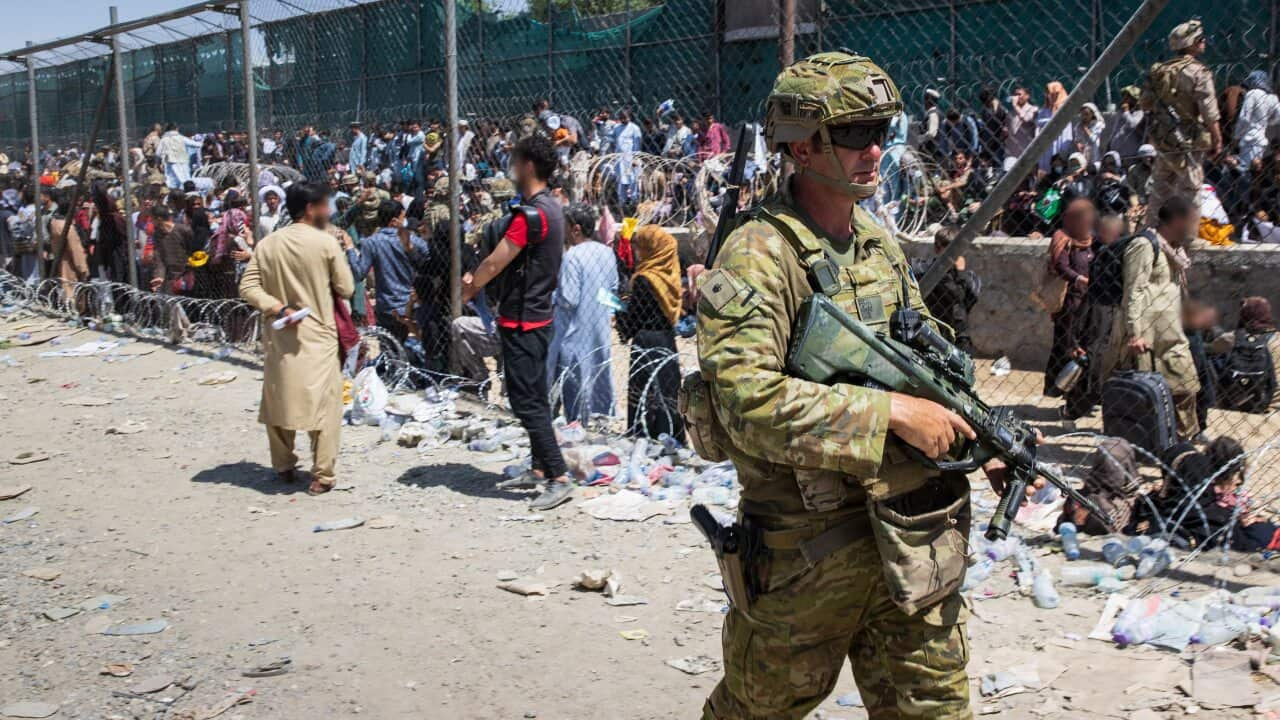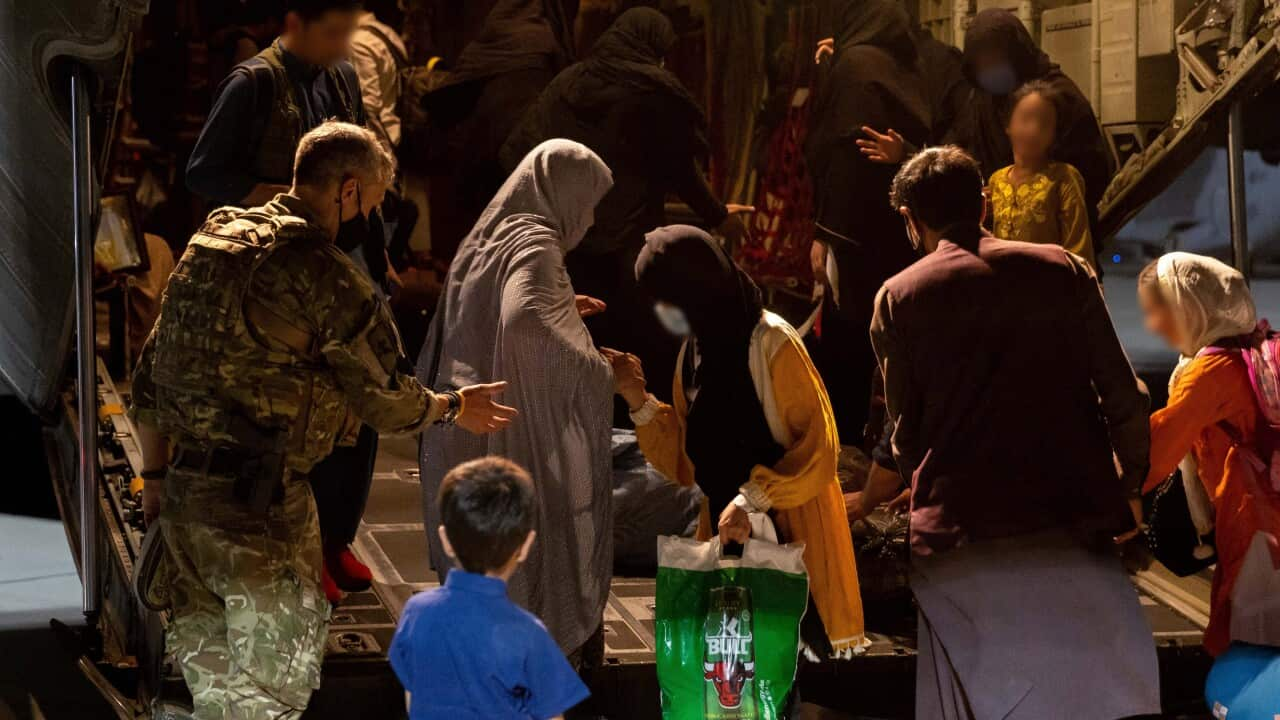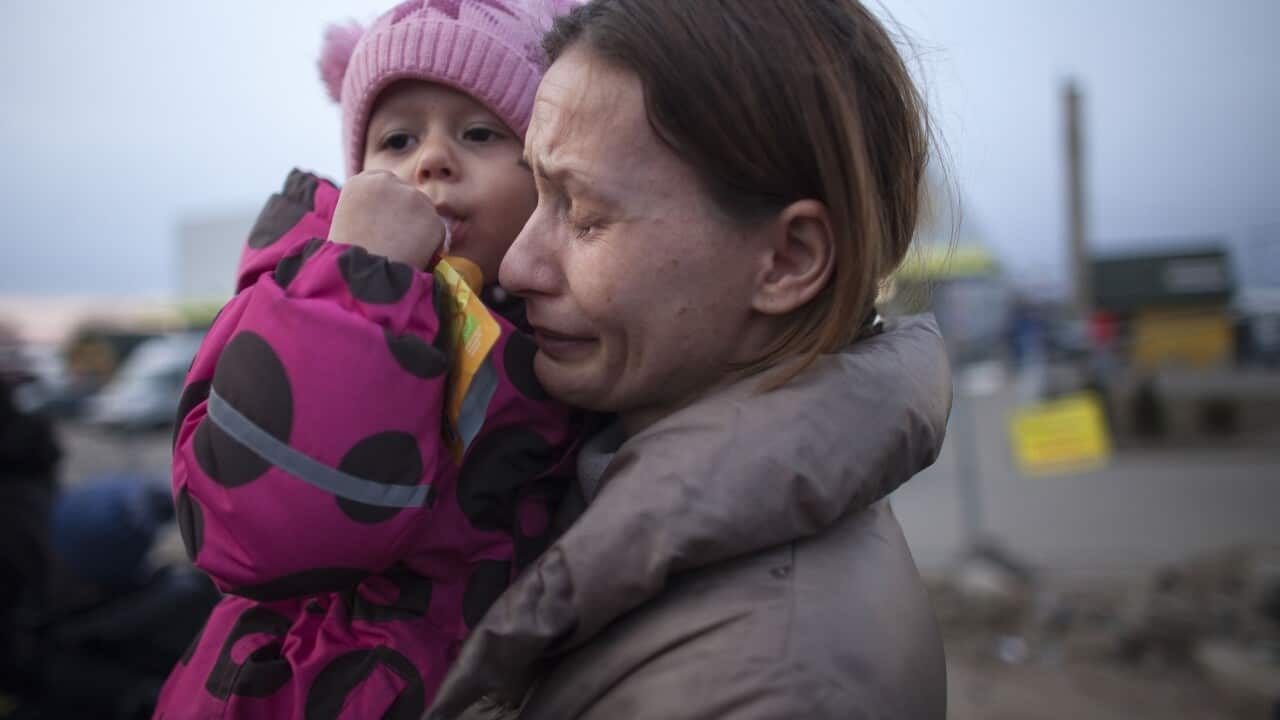Former interpreters from Afghanistan have issued a plea for Australia not to forget them as the world turns its attention to the unfolding humanitarian disaster in Ukraine.
The federal government has fast-tracked the approval of 1,700 temporary visas - including tourist options - to Ukrainians since the invasion by Russian troops.
It's also stressed it is not “stepping back” from its humanitarian program for people from Afghanistan who are seeking permanent resettlement in Australia.
But more than six months since the fall of Kabul, people who worked with Australian troops still in Afghanistan continue to fear for their safety because of the ruling Taliban regime.
They are also becoming increasingly dismayed by a lack of communication on when they could see their visas processed.
Naweed - who requested his last name be withheld - says he is among those to serve as an interpreter with Australian forces still desperately seeking protection.
“I cannot say the government should not support the Ukraine people or bring them over here before us,” he told SBS News.
“But I say beside them that they also support us and also support our families and issue our visas as well because we are also in a critical situation.”
Naweed received an email from the government last August telling him he would be prioritised for consideration in the humanitarian program, but hasn't heard anything since.
He said he and other Afghans with ties to Australia have continued to face threats from the Taliban, claiming they are searching house to house for their presence.
“We are sending emails to home affairs and Department of Defence - none of them are replying [to] our email,” he said.
“When will they help us when we are starving or they kill us or will they evacuate our children when we are killed by the insurgent groups?”

An email sent to Naweed from the Department of Defence telling him he would be given "priority for consideration" as part of Australia's humanitarian response. Source: SBS News / Supplied
Australia has committed to taking in 10,000 refugees from Afghanistan over the next four years within the humanitarian program.
It's also committed to another 5,000 places in the family visa program.
In a Senate estimates hearing on 14 February, it was revealed around 1,000 visas had been issued to Afghans as part of the response.
Hussainy is a former guard of the Australian embassy who was among those to secure a rescue flight from Kabul to Australia last August.
He was issued an emergency temporary visa to come to Australia, but is concerned colleagues and family members left behind remain under threat.
“We want the government to please try to issue visas for those people that they left behind and they are under serious threat,” he said.
“People who are left behind in Afghanistan – they are living in a very bad situation and they’re living in a traumatic situation - a catastrophic situation.”

Hussainy was evacuated to Australia on a rescue flight during the fall of Kabul last August. Source: SBS News / Supplied
The Australian government has said the Afghan visa response will give priority to locally engaged employees and their immediate family members.
It will also prioritise others with enduring links to Australia, such as those with employment with non-government organisations or who worked with the Australian government.
Women and girls, ethnic minorities, LGBTIQ+ and other identified minority groups will also be prioritised.
But with the Department of Home Affairs grappling with applications from more than 145,000 Afghans, it’s unclear when the program will be in a position to approve visas to those who still remain in Afghanistan.
Former deputy secretary of the immigration department Abul Rizvi said a distinction should be drawn between the processing of temporary visas issued for Ukrainians and permanent visas processed for Afghan nationals.
But he said the twin crises would likely place additional strain on the Department of Home Affairs as it works to deal with a surge in applications.
“It’s a perfect storm, a huge backlog, two massive humanitarian crises and we are juggling opening international borders to ramp up and get back into operation the normal visa processes,” he said.
“The department would be I think at this stage juggling resources taking from Peter to pay Paul.”
Australia responds to twin humanitarian crises
The surging demand for visas comes amid the unfolding humanitarian crisis in Ukraine, which the United Nations says has already seen more than 1.7 million people flee the country.
Prime Minister Scott Morrison has said preparations have begun in the humanitarian and migration program - which could see Australia adopt a Kosovar style response for Ukrainians.
The option is a reference to temporary safe haven visas offered to Kosovars fleeing the Kosovo-Serbia conflict in the late 1990s.
“We are preparing those options but we are also not stepping back on the commitments to our Afghan humanitarian program, which continues,” Mr Morrison told a Lowy Institute address on Monday.
To this point, the humanitarian response to Ukrainian nationals has been led by neighbouring countries providing immediate refuge to those fleeing the invasion.
The United Kingdom’s Home Office has also said more than 17,700 applications have been started as part of a new family stream for those who have family in the country or a willing sponsor.
Around 300 visas have been issued to this point through the scheme.
The European Union has also agreed to grant temporary residency to Ukrainians fleeing the invasion and give them access to employment, social welfare and housing for up to three years.
Refugee Council of Australia CEO Paul Power said he welcomed the Australian government’s fast-tracking of temporary visas for Ukrainians as it considers long-term options.
“It’s clear looking at the current situation in both Ukraine and Afghanistan that Australia needs a larger humanitarian program so that we are in a position to be able to respond,” he said.
“Australians across the country are wanting the nation to respond to refugees from both of these conflicts.”













